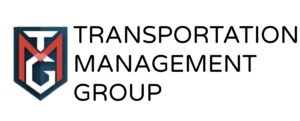Transportation Management Group
Freight Factoring vs Quick Pay Comparison: What Trucking Companies Should Know
Home / Blog
Freight Factoring vs Quick Pay Comparison: What Trucking Companies Should Know
- May 27, 2025

In the fast-paced world of trucking, time is money. For small carriers and owner-operators, getting paid quickly for completed loads can mean the difference between thriving or merely surviving. Two popular options to improve cash flow in the freight industry are freight factoring and quick pay. But how do these two methods really compare?
This freight factoring vs quick pay comparison will help you understand the differences, benefits, and downsides of each so you can make the best decision for your trucking business.
Understanding Cash Flow Options in the Trucking Industry
Why Getting Paid Fast Matters
Waiting 30, 45, or even 60 days for broker or shipper payments isn’t practical for most carriers. During that time, you still need to cover fuel, insurance, maintenance, payroll, and more. Poor cash flow can cripple operations, especially for smaller carriers with limited working capital. That’s why options like freight factoring and quick pay have become essential financial tools.
Two Common Solutions: Freight Factoring and Quick Pay
Freight factoring and quick pay both exist to solve the same problem : slow-paying invoices. However, they operate in fundamentally different ways. This guide will break down the differences so you can determine which one fits your business model.
What Is Freight Factoring?
How It Works
Freight factoring is a financing solution where a trucking company sells its unpaid freight bills (accounts receivable) to a factoring company. In exchange, the company gets a significant percentage of the invoice amount (usually 90% or more) upfront. The factoring company then collects the full payment from the broker or shipper.
This removes the burden of waiting 30+ days for payment and transfers the responsibility of collection and credit verification to the factoring provider. The remaining balance is paid once the invoice is settled, minus a small factoring fee.
For a deep dive into how factoring works, check out Investopedia’s guide on invoice factoring.
Pros of Freight Factoring
-
Immediate access to cash: Same-day or next-day payments keep your trucks moving.
-
Credit services: Many factoring companies provide credit checks on brokers and shippers.
-
Collections handled for you: No more chasing down unpaid invoices.
-
Fuel advances: Some factoring companies offer fuel cards and advance options.
Cons of Freight Factoring
-
Contracts: Many companies require a minimum term or volume commitment.
-
Fees: While usually between 1% and 5%, these fees can add up over time.
-
Loss of control: You’re depending on a third party to manage invoicing and collection.
What Is Quick Pay?
How It Works
Quick pay is a service offered by many brokers to accelerate payment to carriers. Instead of waiting weeks for a standard payment cycle, carriers receive payment within a few days (often 1 to 3 business days) for a small fee, typically 1% to 5% of the invoice amount.
For a carrier-focused overview, see Learn Freight’s explanation of quick pay.
Pros of Quick Pay
-
No contract required: Simple, pay-as-you-go arrangement.
-
Faster than standard pay cycles: You get paid in days rather than weeks.
-
Low commitment: You can choose when and for which loads to use quick pay.
Cons of Quick Pay
-
Limited availability: Not every broker offers quick pay.
-
No credit support: You’re responsible for evaluating and trusting the broker.
-
No collections assistance: If a payment is delayed, you must resolve it yourself.
-
No fuel advances: Quick pay typically only covers the invoice.
Freight Factoring vs Quick Pay: Feature Comparison
When analyzing the freight factoring vs quick pay comparison, it’s clear that each has unique features and limitations. Here’s a side-by-side look :
| Feature | Freight Factoring | Quick Pay |
|---|---|---|
| Speed of Payment | Same-day or next-day | 1–3 business days |
| Credit Checks | Yes | No |
| Collections Support | Yes | No |
| Availability | Universal with all clients | Only with select brokers |
| Contract Required | Often | No |
| Fuel Advances | Yes (some providers) | Rare or none |
For more insights on managing cash flow in transportation, check out My Trucking’s article on cash flow.
Which Option Is Best for You?
When to Choose Freight Factoring
Freight factoring is ideal for carriers who:
-
Want consistent and predictable cash flow
-
Need help with collections and credit risk
-
Haul for a variety of brokers and clients
-
Are growing and need scalable financial support
This solution adds a layer of financial stability, especially in volatile freight markets. If you’re working with multiple brokers, you’re not reliant on whether each one offers quick pay.
When to Choose Quick Pay
Quick pay may be the right fit if:
-
You haul primarily for a few brokers who offer it
-
You prefer to avoid contracts
-
You only occasionally need accelerated payment
Keep in mind that not all brokers offer quick pay, and those that do may not have the lowest fees or fastest turnaround. It’s often more of a temporary solution than a long-term strategy.
Red Flags to Watch Out For
Regardless of which payment method you choose, be cautious about:
-
Slow paying brokers even with quick pay agreements
-
Hidden fees in factoring agreements or quick pay programs
-
Lack of transparency in fee structures
Before agreeing to work with any broker, check their credit and payment history using the FMCSA Safer System.
Final Thoughts: Freight Factoring vs Quick Pay Comparison Recap
In this freight factoring vs quick pay comparison, we’ve shown that both solutions can improve cash flow, but each serves different needs. Factoring provides comprehensive support with faster payments, collections, and fuel programs. Quick pay is a broker-specific service with minimal setup, but fewer long-term benefits.
Ultimately, the right choice depends on your business size, growth goals, and how much administrative support you need.
Need Reliable Freight Factoring? Work With TMG
If you’re looking for a dependable freight factoring partner, Transportation Management Group (TMG) offers same-day payments, no hidden fees, and a dedicated team to help your business grow.
We work with carriers of all sizes and offer tailored factoring solutions to help you keep moving and stay profitable.
Click here to learn more about our freight factoring services.
Want help deciding between quick pay and factoring? Reach out to our team today for a free consultation and personalized recommendation.
